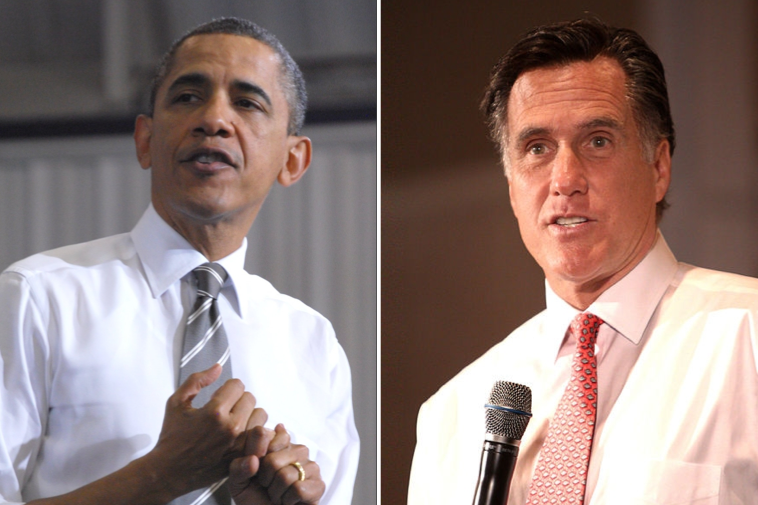US Politics: Why ‘The One’ Stumbled – Analysis
By Observer Research Foundation
By Rajesh Rajagopalan
There is little doubt that President Barack Obama crumbled in the first Presidential debate. His supporters were horrified at Obama’s performance: Andrew Sullivan, the Liberal blogger, tweeted: “Look: you know how much I love the guy … But this was a disaster for the President for the key people he needs to reach, and his effete, wonkish lectures may have jolted a lot of independents into giving Romney a second look.” Chris Mathews, of the pro-Obama MSNBC Channel, asked the question that a lot of Obama supporters were asking: “Where was Obama tonight?”

Obama’s disastrous performance raises a couple of questions. The obvious one is why Obama performed so badly, but an equally important question is what the consequences might be for the presidential race.
There are several reasons for Obama’s poor performance. For one, Obama was always more comfortable making grand teleprompter-supported speeches rather than engage in the back-and-forth of debates. Indeed, Obama has refused to engage with tough questioning and debating even in press conferences. As Dana Milibanks pointed out (citing an academic study), Obama has held far fewer press conferences than almost any other previous President, with the exception of George W. Bush (who, on the other hand, held far many more informal Q & A sessions with the media). Obama has chosen instead fairly easy settings such as friendly late night comedy shows like David Letterman.
Second, clearly, President Obama has had a really poor record to defend. What is most surprising is not that that he performed so badly, but that he is so competitive despite the terrible economic conditions that confront the US. The Obama campaign has been good at blaming the previous Bush administration for creating these conditions, arguing that the Obama administration was left with unprecedentedly bad economic circumstances. Nevertheless, this strategy left Obama unprepared for the kind of energy that Romney brought to the debate.
Third, President Obama may have consumed too much of his own campaign’s propaganda that painted Romney as an out-of-touch millionaire who is an idiot to boot. The New York Times reported that according to Obama’s aides, Obama was not happy about debating Romney “whom he views with disdain.” Indeed, throughout the last several months, the Obama campaign had been caricaturing Romney. It was no surprise then that opinion polls before the debate showed that people expected Obama to win the debate by a margin of 55 to 31 percent, according a Washington Post poll. Though both campaigns tried to lower expectations, clearly the expectation was that Romney would be no match for Obama – and Romney clearly benefited from this.
What about the consequences? Liberals were quick to suggest that presidential debates do not have much of an impact, “barring total disaster” as Gail Collins suggested in the New York Times. Prior to the debate, Nate Silver of fivethirtyeight blog suggested that though the first debates usually helped the challenger, this was unlikely to help Romney considering how much he was behind in the opinion polls already. But Romney’s debate win was historic, blowing out all previous records. According to CNN-Gallup poll survey, Romney won by 52 points – and the next nearest margin was Bill Clinton’s debate victory over George H.W. Bush in 1992, which Clinton won by 42 points.
It is true that one debate victory, even one of the magnitude that Romney had, might not ensure victory. But it will now be difficult for the Obama campaign to paint Romney as some combination of Gordon Gekko and Bozo the clown. If the Obama campaign decides to double down on their portrayal of Romney in these terms, it is likely that they will end up antagonizing the independents.
And Romney’s debate performance is also having significant impact on the opinion polls. In the latest Pew poll, Romney has evened with Obama among registered voters (46% each) and drawn slightly ahead among likely voters (49% to 45%). More significantly, in the key battleground states such as Florida, Virginia, Ohio and Colorado, Romney has either drawn even or significantly reduced Obama’s lead, according to Real Clear Politics aggregates of various polls. Of course, these polls are just snap shots of the current condition and it could change over the next month. But, at the very least, Romney has managed to shake-up a race that seemed almost done.
But politics is also about intangibles, including luck, and there is little doubt that Obama is enormously lucky, maybe the luckiest politician alive, or even, as the comedian Jon Stewart characterised it, ?the luckiest dude on the planet’. And the surprisingly good news on the jobs data might slow down some of Romney’s momentum. Ultimately, as the commentator David Gergen noted, “we now have a horse race on our hands.”
(Dr. Rajesh Rajagopalan is a Professor at the School of International Studies, Jawaharlal Nehru University)
